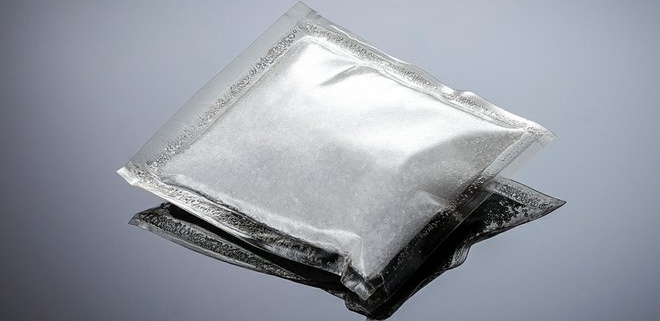Researchers develop polymer film made from 100% natural ingredients.
Researchers from the University of Cambridge have created a polymer film made from 100% plant protein that requires no chemical additives – and they claim it has comparable functionality to conventional plastics. Sample company that is set to commercialize the solution.
About Sample Company
For example, a spin-out from The University of Cambridge is a next-gen plastic startup that makes natural alternatives to plastics.
Xampla’s mission is to replace the everyday single-use plastics you see all around, like sachets and flexible packaging films.
The sample was founded in 2018 by Professor Tuomas Knowles. The company is headquartered in Cambridge, UK.
A sample has created the world’s first plant protein material for commercial use.
About polymer film made from natural ingredients:
Quoted from Packaging Europe:
Made entirely from plant protein which can be sourced as a by-product of the agriculture industry, Xampla, says that the resulting material can be disposed of in nature after use like any natural waste, leaving no pollutants behind.
Notably, the company also claims that the material’s functionality is consistent with conventional plastic, but it requires no chemical cross-linking used in many bio-polymers to give them the strength and flexibility of plastic.
Research published in the Nature Communications scientific journal reportedly shows how scientists could naturally assemble plant proteins so that the final structure was very similar to spider silk. The researchers say that this “breakthrough” is the first time these structures have been seen in a material that derives from plant protein.
Sample hopes that the technology, which utilizes a process involving acetic acid, water, ultra-sonication, and heat, can replace single-use plastics, including flexible packaging films, sachets, microcapsules found in the home and personal care products, and carrier bags.
The scientists behind this innovation were inspired by spiders’ silk, which is weight-for-weight stronger than steel but has weak molecular bonds, meaning it can break down quickly. They sought to understand the building blocks of this natural phenomenon to create a material with the same molecular properties.



 What is Batch Inclusion bags?
What is Batch Inclusion bags?
Leave a Reply
Want to join the discussion?Feel free to contribute!